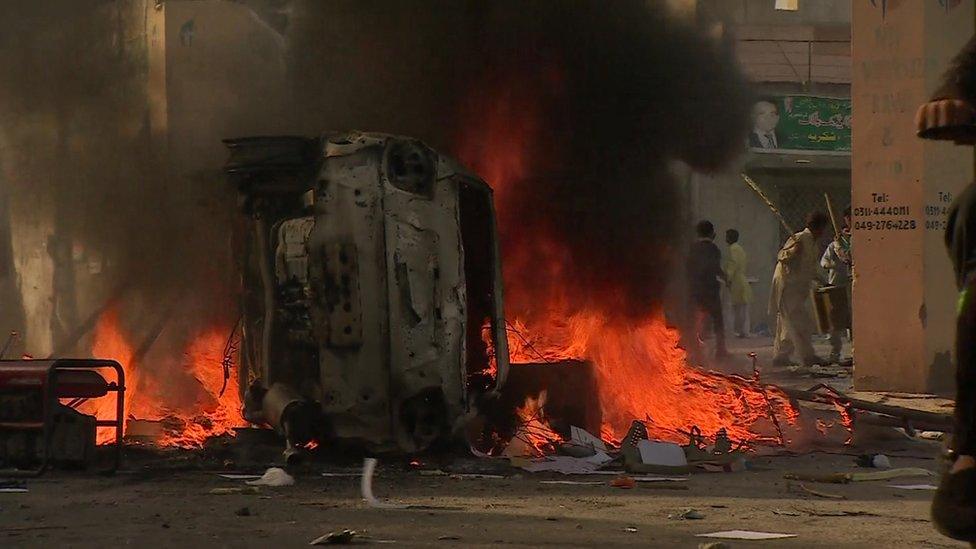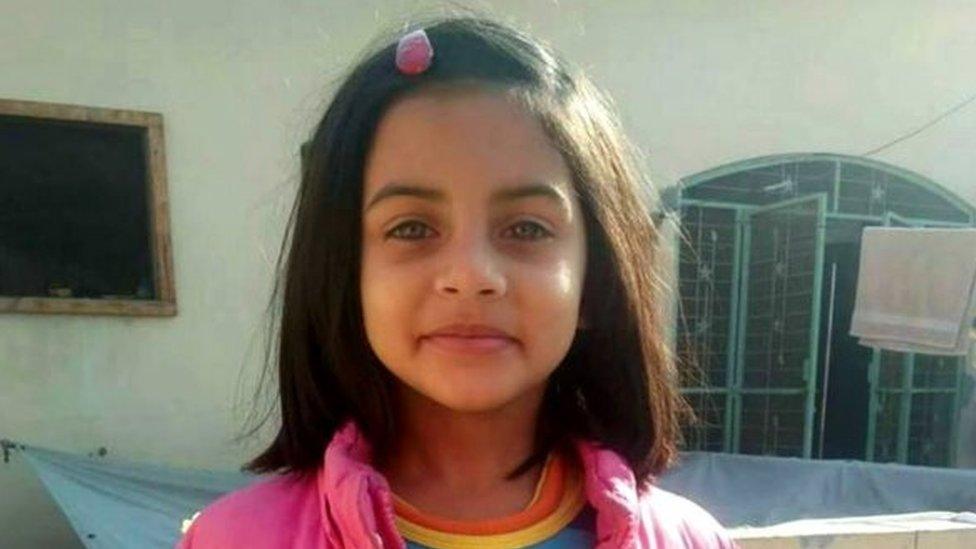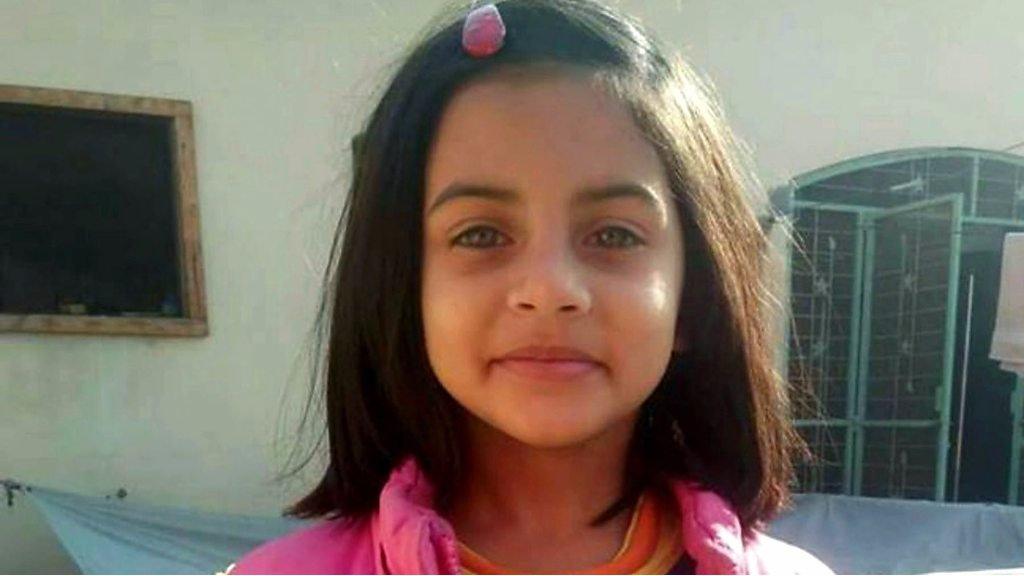Pakistan Zainab murder: New law aims to catch child abusers
- Published
The rape and murder of six-year-old Zainab sparked outrage in Pakistan.
Pakistan's parliament has passed a new bill against child abuse, two years after the murder of a seven-year-old sparked deadly riots and public debate.
The Zainab Alert, Response and Recovery Bill is named after Zainab Ansari, whose raped body was found in 2018.
The legislation provides for a dedicated agency to respond more quickly when children go missing.
Zainab's murder was one of a string of such attacks in Kasur city, and sparked outrage and protests in the country.
At least two people were killed in the rioting which broke out at the time. The man convicted of her murder - who had also been found guilty of similar crimes against six more girls - was executed later that year.
The bill has already been passed by the upper house of parliament and will become law after formal assent is granted by the president.
The legislation has been widely welcomed by human rights activists, but questions remain over how much impact it will have.
#JusticeforZainab
Zainab's dead body was discovered on a rubbish dump on 9 January 2018. She had gone missing the evening before.
Protests quickly broke out in the area, with locals accusing police of inaction and failing to make arrests in a string of other attacks on children.

CCTV footage showed a man leading away a young girl, believed to be Zainab
Zainab's killer, Imran Ali, was arrested some three weeks later, with the help of CCTV footage which was obtained by Zainab's relatives.
The debate that Zainab's killing triggered brought pressure on the government to strengthen legislation on wider child rights, including the provision of a safety net for vulnerable children involved in begging and child labour.
But the latest legislation is confined to sexual abuse and murder only.
It provides for the setting up of an agency to run a dedicated helpline for missing child alerts, and makes it incumbent on local police chiefs to respond within two hours of the alert, failing which they could face disciplinary action.
It also requires the police to complete their investigation in such cases within three months.
But questions remain over practical, on-the-ground arrangements.

Riots broke out in Kasur when Zainab went missing
For example, do the police force have the wherewithal to solve child abduction cases within this time frame, asks Dr Nazir Mehmood, a columnist and rights activist linked with the independent Human Rights Commission of Pakistan (HRCP).
"The time bar on case investigations is good - we know that sometimes simple cases linger on for years due to lack of interest.
"But a blanket restriction without qualifications could cause problems. Every case is not so simple as to be solved within three months."
He also pointed out the scarcity of female police staff. "We need a legally backed arrangement for more women to be recruited to the police force as women are more likely to win the trust of children and more likely to care for them than men."
The HRCP estimates that there have been more than 20,000 reported cases of child abduction and abuse since 2015, or more than 13 cases per day.
Dr Mehmood says there aren't enough police available to "handle all these cases efficiently and judiciously, without arraigning innocent people to complete paperwork and save their jobs".
- Published17 October 2018

- Published11 January 2018

- Published23 January 2018

- Published17 February 2018
